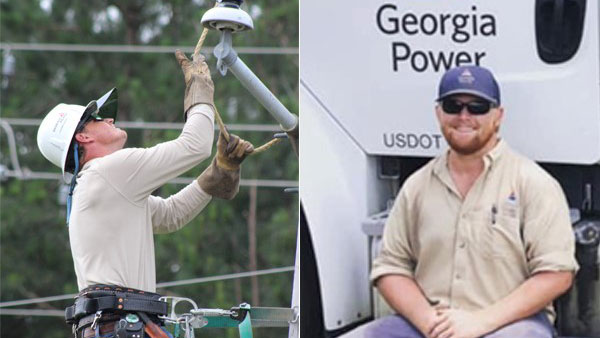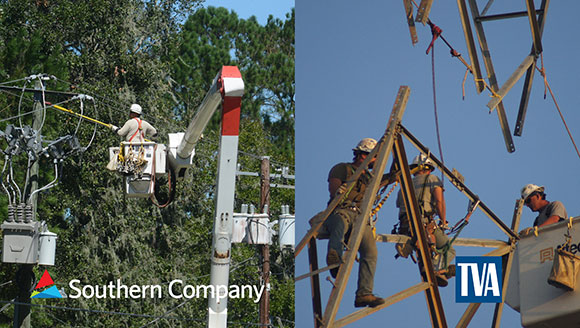It’s peak hurricane season. Are you prepared?
<p>September and October are peak months for Atlantic hurricanes threatening the southeast and the gulf coast. This is the time of year when storms are more likely, much stronger, and more devastating to coastal communities.</p>
<p>It only takes one major storm to disrupt daily activities and cause extensive damage to communities. Taking simple steps now to get ready for emergencies in your home, business, and community can pay great dividends if, and when, an emergency occurs.</p>
<p>The Edison Electric Institute (EEI) is the association that represents all U.S. investor-owned electric companies. The following industry tips are offered to help customers prepare during peak hurricane season.<b></b></p>
<p><b>Get ready:</b></p>
<ul>
<li>Develop an emergency plan that addresses any special medical needs you or your family members have. Call your local emergency management office to discuss necessary arrangements.</li>
<li>Have your <a href="https://www.eei.org/issuesandpolicy/electricreliability/mutualassistance/Documents/Emergency_Outage_Kit.pdf" target="_blank">Emergency Outage Kit</a> stocked and readily available.</li>
<li>Know all evacuation routes if you live close to the coast. If you or anyone you know has special needs in case of evacuation, contact your local emergency management office. Find the phone number at <a href="http://www.fema.gov/" target="_blank">www.FEMA.gov</a>.</li>
<li>Pay attention to local weather reports on the radio, television, and Internet.</li>
<li>Stock up on non-perishable food, water, medications, and any other necessities to avoid the need for travel during the storm. If called to evacuate, do so immediately.</li>
<li>Learn what to do in case of a <a href="https://www.eei.org/issuesandpolicy/electricreliability/mutualassistance/Pages/preparing-for-power-outages.aspx" target="_blank">power outage</a>.</li>
<li>Make sure your contact information is current with your local energy provider in order to receive any status or safety updates the company might put out during an emergency. Be sure to follow your energy provider on social media for real-time updates.<ul>
<li><a href="https://twitter.com/alabamapower" target="_blank">Alabama Power Twitter ⇨</a></li>
<li><a href="https://twitter.com/GeorgiaPower" target="_blank">Georgia Power Twitter ⇨</a></li>
<li><a href="https://twitter.com/MS_Power" target="_blank">Mississippi Power Twitter ⇨</a></li>
</ul>
</li>
</ul>
<p><b>If a severe storm hits your area:</b></p>
<ul>
<li>Stay in a secure room and away from windows. Remain indoors.</li>
<li>Monitor weather bulletins on a battery-powered radio.</li>
<li>Turn off power to flood-prone basement appliances if it is safe to do so. However, if using an electrically operated sump pump, you should not turn off the power.</li>
<li>If using a personal generator, follow all recommended precautions. Never use a generator inside your home, garage, crawl space, other enclosed areas, or anywhere exhaust fumes can enter. Fatal, odorless fumes can build up quickly, and opening doors and windows or using fans will not prevent carbon monoxide buildup in the home.</li>
<li>Stay away from downed power lines and always treat fallen wires and anything touching them as though they are energized. Immediately report downed lines to your electric company.</li>
<li>If your power goes out, report your outage immediately to your local electric company. Don’t rely on your neighbors to report your outage.</li>
</ul>
<p><b>Severe Weather and Reliability</b></p>
<p>In addition to customer safety, the electric power industry’s top priority is to provide a reliable supply of energy. Learn more about how the industry responds to outages caused by severe weather:</p>
<ul>
<li>Review the <a href="https://www.eei.org/issuesandpolicy/electricreliability/mutualassistance/Documents/stormrestorationprocess.pdf" target="_blank">power restoration process</a>.</li>
<li>Learn about the industry’s <a href="https://www.eei.org/issuesandpolicy/electricreliability/mutualassistance/Documents/MA_101FINAL.pdf" target="_blank">Mutual Assistance Network</a> and our response and restoration process.</li>
<li>Visit your local electric company’s Web site for the latest updates and guidance on how to prepare for storms:<ul>
<li><a href="https://www.alabamapower.com/">alabamapower.com</a></li>
<li><a href="https://www.georgiapower.com/">georgiapower.com</a></li>
<li><a href="https://www.mississippipower.com/">mississippipower.com</a></li>
</ul>
</li>
</ul>
<p>For more hurricane safety and preparation tips, visit the <a href="http://hurricanesafety.org/prepare/" target="_blank">National Hurricane Survival Initiative</a>.</p>

